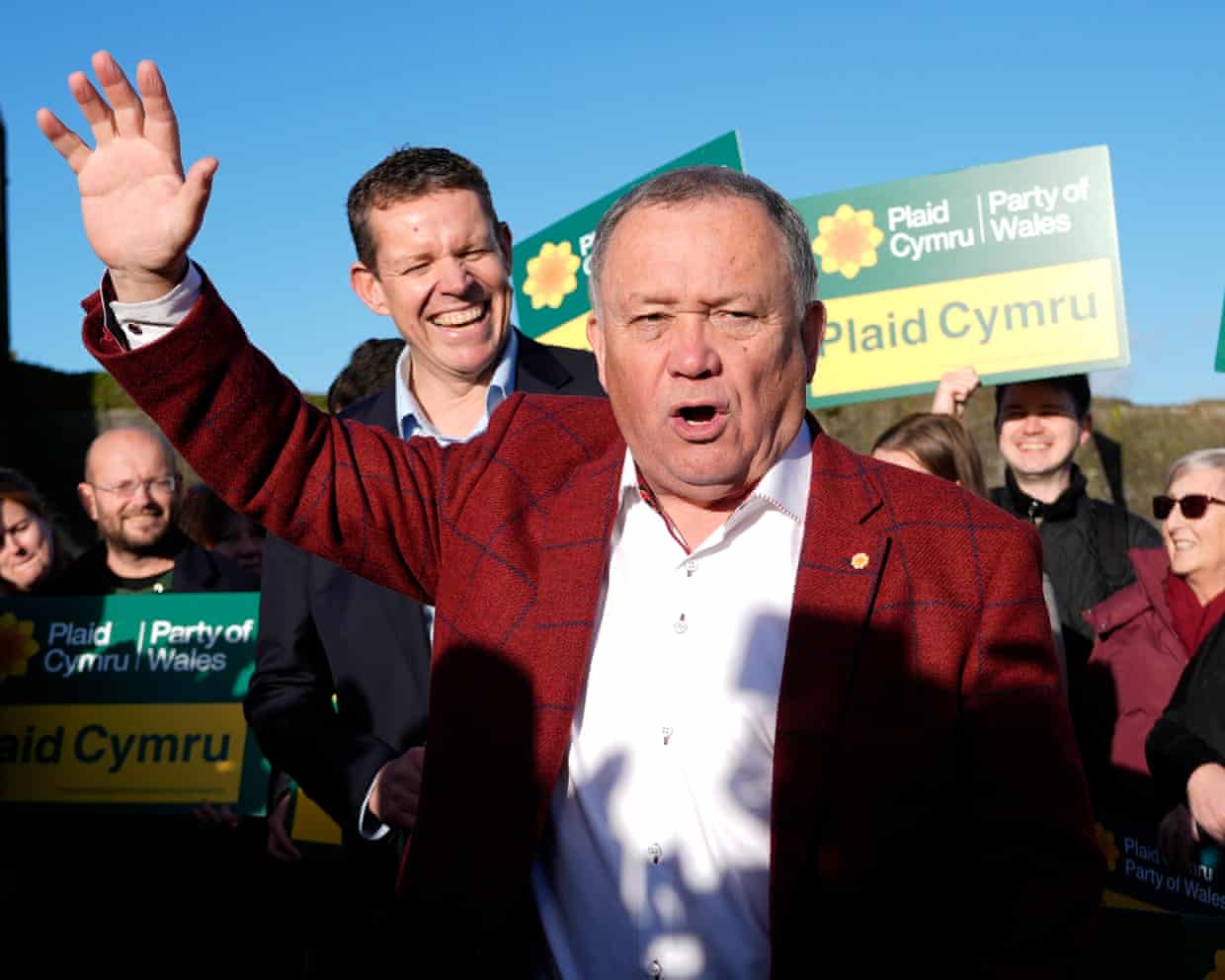Oil price jumps and FTSE 100 hits new high after Trump puts sanctions on Russian firms

Oil prices jumped and energy companies helped the FTSE 100 to a record high after Donald Trump announced new sanctions on Russia’s two biggest oil producers,Brent crude increased by 5,7% to $66,13 a barrel after the news of the fresh restrictions on Rosneft and Lukoil, as the US president ramps up pressure on Vladimir Putin to end the war in Ukraine,The jump in oil price also boosted shares in the energy companies Shell and BP by about 3%, which in turn helped to drive the FTSE 100 to a record high of 9,594.
82.By contrast, stock markets in Moscow plunged.The MOEX Russia Index, which tracks 40 of the country’s largest publicly traded companies, fell as much as 3.6%, while the RTS Index, which tracks Russian stocks in US dollars, fell by a similar amount.All assets in the US belonging to Russia’s two largest fossil fuel companies have been frozen, and American companies and individuals will be barred from doing business with them.
The US is also threatening secondary sanctions on foreign financial institutions that do business with Rosneft and Lukoil, which could include banks that facilitate sales of Russian oil in China, India and Turkey.In a sign that the pressure may already be having an impact, reports suggest that refiners in China and India are preparing to sharply reduce their imports of Russian oil.The Chinese state oil majors PetroChina, Sinopec, CNOOC and Zhenhua Oil have suspended purchases of seaborne Russian oil in the short term over concerns about the latest sanctions, according to sources cited by Reuters.Reliance Industries, the top Indian buyer of Russian crude, plans to reduce or halt imports, according to Reuters and the Financial Times.India has been one of the biggest buyers of discounted seaborne Russian crude oil since the war in Ukraine, prompting Trump to impose punitive 50% tariffs on most Indian goods in August.
Wednesday’s sanctions on Russia are the first Trump has imposed against the country since he returned to the White House in January.The US president, speaking to reporters in the Oval Office, described the measures as “tremendous”.He said: “These are very big ones that are against their two big oil companies, and we hope that they won’t be on for long.We hope that the war will be settled.”Trump added that he hoped Putin would continue negotiations over Ukraine.
“Hopefully he’ll become reasonable, and hopefully Zelenskyy will be reasonable,” he said.“You know, it takes two to tango, as I say, and we’ll find out.”The EU also announced it was imposing fresh sanctions, including a ban on Russian liquefied natural gas imports.Brussels added two Chinese refiners along with Chinaoil Hong Kong, a trading arm of PetroChina, to its Russia sanctions list, its official journal showed on Thursday.Sign up to Business TodayGet set for the working day – we'll point you to all the business news and analysis you need every morningafter newsletter promotionThe two refineries are Liaoyang Petrochemical and Shandong Yulong Petrochemical.
They have a combined capacity of 600,000 barrels per day (bpd) and account for 3% of China’s 19m bpd refining capacity.Scott Bessent, the US treasury secretary, said the US administration was “prepared to take further action if necessary to support President Trump’s effort to end yet another war.We encourage our allies to join us in and adhere to these sanctions.”The British government imposed sanctions on Rosneft and Lukoil last week.The EU has imposed sanctions on Rosneft, which is owned by the Russian state, but not Lukoil, which is privately owned.
That is largely because of exemptions for Hungary and Slovakia, which buy Russian oil.Trump also confirmed on Wednesday that he had cancelled a summit with Putin.He said: “It didn’t feel right to me.It didn’t feel like we were going to get to the place we have to get, so I cancelled it.But we’ll do it in the future.
”The oil price is now on track for its biggest rise since July, according to analysts at Deutsche Bank,Jorge León, the head of geopolitical analysis at Rystad Energy, a leading energy consultancy, described the US sanctions against Russia as “a significant and unprecedented escalation in Washington’s pressure campaign against Moscow”,He added: “The sharp rise in oil prices following the announcement underscores market fears that Russian crude exports – particularly to India, one of its key customers – could fall sharply,”The price rise could also raise the prospect of “major disruptions” to Russian crude production and exports that would cause oil market prices to rise higher, he said,“The big question now is whether Washington’s latest sanctions will be enough to draw Moscow back to the negotiating table – and, if they fail to do so, what options remain to increase pressure without crossing the line into open confrontation,” León said.
The best public interest journalism relies on first-hand accounts from people in the know.If you have something to share on this subject you can contact the Business team confidentially using the following methods.Secure Messaging in the Guardian appThe Guardian app has a tool to send tips about stories.Messages are end to end encrypted and concealed within the routine activity that every Guardian mobile app performs.This prevents an observer from knowing that you are communicating with us at all, let alone what is being said.
If you don't already have the Guardian app, download it (iOS/Android) and go to the menu.Scroll down and click on Secure Messaging.When asked who you wish to contact please select the Guardian Business team.SecureDrop, instant messengers, email, telephone and postIf you can safely use the tor network without being observed or monitored you can send messages and documents to the Guardian via our SecureDrop platform.Finally, our guide at theguardian.
com/tips lists several ways to contact us securely, and discusses the pros and cons of each.

Caerphilly byelection a triumph of positivity over division, says Plaid Cymru leader
Plaid Cymru can offer a positive vision for Wales for voters who want to reject the divisiveness of Reform UK, the party’s leader has said after a triumphant Welsh parliamentary byelection.Rhun ap Iorwerth said the 47% win for his party in the Caerphilly byelection was a rejection of Reform and its focus on immigration, which, while important, did not overshadow more pressing issues, such as healthcare and housing.Speaking to the Guardian on Friday outside Caerphilly Castle, ap Iorwerth said the win for his party’s candidate, Lindsay Whittle, also underlined a crash in support for Labour, which had “abandoned its values”.He said he accepted tactical voting was in play, but that it was only part of the picture, with some lifelong Labour supporters making a permanent shift in support.“The scale of the results shows the positive engagement with our vision,” he said

‘Reform didn’t have any idea about south Wales’: Plaid Cymru supporters celebrate byelection win
The skies above Caerphilly may have matched the turquoise of Reform UK but it was the green and yellow of Plaid Cymru that dominated the valleys town on Friday morning.The Welsh nationalists trounced their opponents with a hefty 47% of the vote in a Senedd byelection that was framed by many as a potential “canary in the coalmine” moment for Welsh politics.Reform failed to live up to the hype and came second with 36% and Labour’s vote – in a constituency it has held for decades – collapsed to a paltry 11%.It had been expected to be closer between Plaid and Reform, pegged as a 50/50 two-horse race. Both parties threw their weight behind the contest, with their respective leaders, Rhun ap Iorwerth and Nigel Farage, joining the campaign trail earlier this month

Plaid Cymru ousts Labour in Caerphilly byelection
Plaid Cymru has hailed its win at the Caerphilly byelection as a historic moment for Wales, as the dramatic result left the leaders of Labour and Reform UK wounded.Rhun ap Iorwerth’s party, which wants independence for Wales, seized the Senedd (Welsh parliament) constituency from Labour and resisted a fierce challenge from Reform UK.Plaid Cymru’s candidate, Lindsay Whittle, received 15,961 votes, while Reform UK’s Llŷr Powell won 12,113. Labour’s vote collapsed in what had been a stronghold, with its candidate, Richard Tunnicliffe, polling only 3,713 votes.The Welsh nationalists’ triumph was being put down in part to their clear, passionate call for the people of south Wales to reject Reform UK’s stance on immigration

Plaid Cymru’s victory in Caerphilly points to a new kind of electorate
Plaid Cymru’s byelection victory in the Welsh town of Caerphilly is unprecedented. Labour had won every election here for more than a century. Yet the result also feels strangely familiar.Observers of British politics have become accustomed to waking up to unprecedented results. By the end of the previous Westminster parliament, record byelection swings against the incumbent government had become the norm, and elections at all levels had shown an electorate who were willing and able to identify the best-placed party to defeat a disliked option

Caerphilly result is blow to Labour and Reform – and shows parties who cannot adapt will be crushed
If anyone inside No 10 allowed themselves a sigh of relief at Reform UK’s advance being stymied in the Caerphilly byelection, they would then have heard the warning from Lindsay Whittle, Plaid Cymru’s winning candidate: “You are on your way out after 100-plus years.”Labour in Wales might or might not be “a dying beast”, as Whittle argued, but this one-off Senedd race illustrated how it was on course to lose its grip on Welsh politics in May, with potentially wider implications for Keir Starmer and his party.The idea that the full Senedd elections will result in Labour being supplanted by Plaid and Reform has long been heralded by polling, but here it was in stark voting figures: a Labour share of 46% when the seat was previously contested in 2021, now down to 11%; a consistent first place in the town since the Senedd was created in 1999 had tumbled to third.This signals not just a seismic shift in Welsh politics, it is also likely to create huge ripples in Westminster, with many Labour MPs and ministers viewing May’s elections in England, Wales and Scotland as a pivotal moment for the prime minister.Whittle’s warning from outside that Labour must “get back to the drawing board” is a sentiment shared by many within the party, and if the forthcoming elections end particularly badly, there will be serious consideration as to whether Starmer is the man to do this

Starmer lays out vision for much-criticised digital ID scheme
Keir Starmer has set out his vision for digital IDs as he fights to win back public support for the scheme.The prime minister’s plan for digital IDs was met with criticism when it was announced last month, and was described as a symptom of his “reverse Midas touch”.Concerns have been raised over civil liberties and cybersecurity, but Starmer insisted that the identification system would never be needed to get into hospital after fears about its potential impact on accessing public services and data protection.He told staff at a Barclays branch in Brighton on Thursday that digital ID would “really help” with security for customers after they told him they dealt with victims of scams and fraud every day.He said customers at the bank had told him they were “really excited about it” and had relayed “everyday examples where you can just cut the faff”

Rachel Roddy’s recipe for leftover polenta biscuits | A kitchen in Rome

Don’t chuck your parmesan rind – it is an excellent stock cube – recipe | Waste not

No waste, all taste: Max La Manna’s comfort food pantry-raid recipes

If you like piña coladas: how to make slushies at home without a machine

Pickle power: how to make your first ferments | Kitchen aide

Georgina Hayden’s recipe for parmesan and sage jacket potato gnocchi | Quick and easy